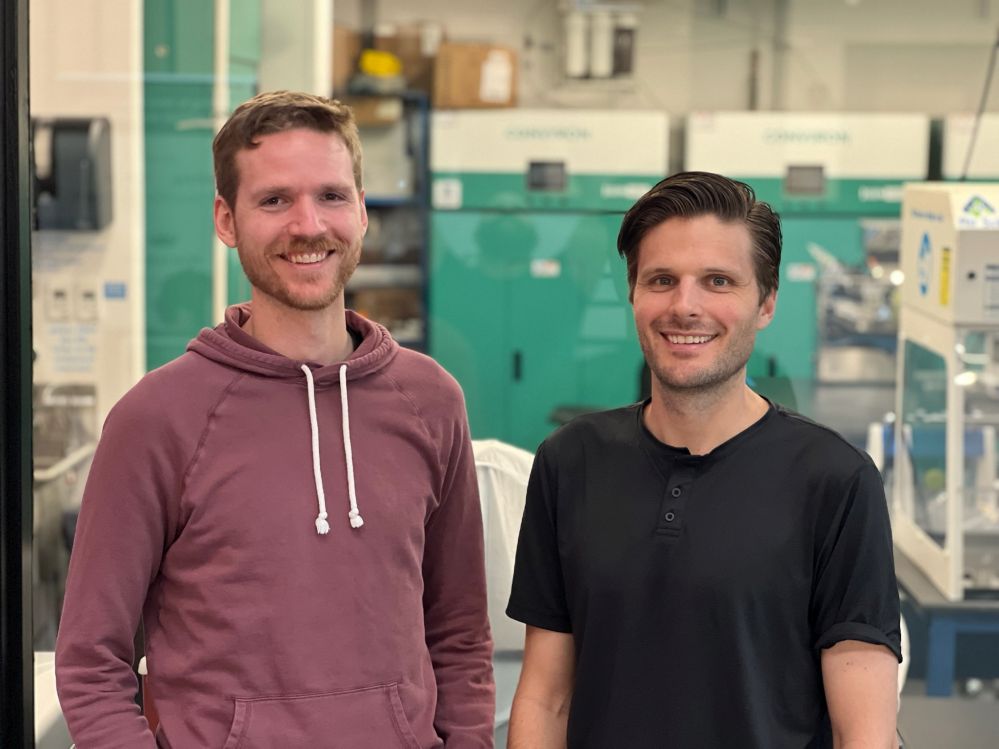Caladan Bio—a Brooklyn-based startup developing a lower-cost benchtop bioreactor system designed to enhance data capture and increase experimentation throughput—has raised a $5 million seed round led by Twelve Below.
The round, supported by Lerer Hippeau, Collaborative Fund, Wireframe Ventures, Ritual Capital and Factorial Capital, will help the firm expand its team and its platform, says CEO Mike Kobida, who cofounded Caladan Bio last summer with college friend Rob Jauquet.
“As the tools to edit cells become commonplace, the focus needs to shift towards optimizing scaleup of bio-made products,” said Kobida, who specializes in hardware, low-cost robotics and lab automation, while Jauquet focuses on software engineering, data and automation. “The vast majority of synbio companies especially outside of the pharmaceutical industry, are struggling to achieve cost parity with incumbent products [made by petrochemicals or animals, for example].
“For these companies to optimize their scaling processes, they need to run hundreds if not thousands of experiments, which is incredibly costly,” Kobida told AgFunderNews. “We’re focused on lowering the cost of those experiments and increasing the amount of data coming out of them so they can learn more using tools such as artificial intelligence and machine learning. The result is faster process optimization and a reduction in development timelines.”
Standard structured datasets
Benchtop experiments are often run in single-use plastic bioreactors at the 250ml scale that have to be delivered sterile. And at $500-$1,000 a time, this is pretty costly as you have to throw them away after each run, he said. “If you use re-usable glass tanks instead, you’re autoclaving them every time, which is also very costly.”
Caladan Bio’s hardware is cheaper than commercially-available options but also features more sensors to generate data that can provide more actionable insights, claimed Kobida.
“Our first product, the Caladan 250, features modular 250ml bioreactors designed to be used in sets of up to 24 on the benchtop, with a suite of sensors designed to produce standard structured datasets allowing customers to leverage modern AI and ML tools,” he added.
“We’re in the process of putting together pilot partnerships for installations in the second half of this year.”
The Caladan 250 is vertically integrated, he added, “so we’re really like a sensor and software company and we apply that through low-cost hardware that we also manufacture. Normally you’ll have sensors that monitor dissolved oxygen, pH, and temperature, but we’re also adding biomass and then off gas sensors to each reactor as standard.”
Vertical integration
While companies can already monitor all of these things and more, he said, “they often have very custom integrations where they’re buying the bioreactor from one company, the sensors from someone else, and software from someone else, and they have to paste all this data together. We’re taking a vertically integrated approach, putting them all in one product and then building software that runs everything together.”
As for AI and ML, he said, “The opportunities to leverage these tools across biotech are tremendous, but I think the main piece that’s missing is highly structured, specific data sets that are relevant to the application that our customers care about. By increasing the sensors that are standard, we’re able to build standard structured datasets that you can then go use for modeling applications.
“You can’t write run [AI/ML] models unless you have really solid data to work with.”





